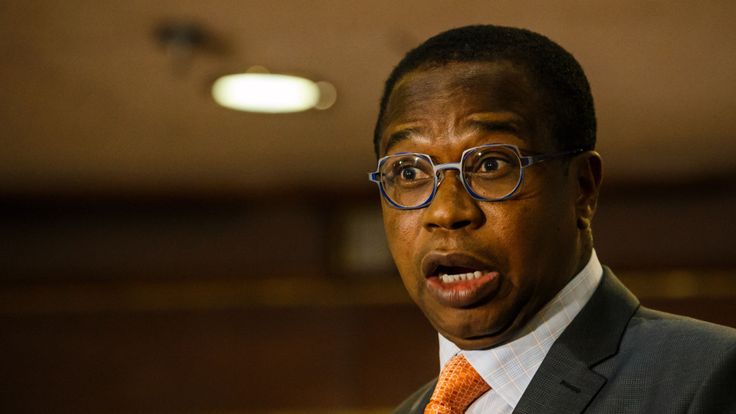
ZIMBABWE will adopt a “managed float” exchange rate regime, Finance minister Mthuli Ncube (pictured) said yesterday, abandoning strict control of foreign exchange by the central bank in the latest move in a series of currency reforms that have so far failed.
The country, which has seen bouts of hyperinflation since the 2008, has taken steps to ease its heavy reliance on the United States dollar, part of a raft of economic reforms by President Emmerson Mnangagwa, who replaced longtime leader Robert Mugabe after an army coup in 2017.
Last June it made its interim currency the country’s sole legal tender, ending a decade of dollarisation and taking another step towards relaunching the Zimbabwean dollar.
The central bank has controlled the interbank forex trading market, which was introduced in February 2019.
The latest move will see banks play a bigger role in foreign currency trades, narrowing the gap with the unofficial market by allowing trade on a more transparent platform.
“Zimbabwe has had no transparent and effective foreign exchange trading platform for a long time. Consequently, official rates have not been effectively determined, while a thriving parallel market has developed,” Ncube told reporters in Harare.
He said the Reuters electronic forex trading platform was being put in place immediately.
“This platform will allow foreign exchange to be traded freely among banks and permit a true market exchange rate to be determined.”
- Chamisa under fire over US$120K donation
- Mavhunga puts DeMbare into Chibuku quarterfinals
- Pension funds bet on Cabora Bassa oilfields
- Councils defy govt fire tender directive
Keep Reading
Last month the International Monetary Fund warned that delays by Zimbabwe in implementing foreign exchange and monetary reforms risked undermining the new currency and the government’s re-engagement internationally on debt arrears.
Ncube said Bureaux de change will access hard cash from the central bank, adding that there would be no limit for them to finance exporters.
The central bank will gradually discontinue allocating foreign currency to fuel companies who will have to bid for it on the interbank market.
“The central bank shall provide the ministry of finance and MPC with precise data on daily/weekly forex inflows and estimated amounts available for release into the interbank market. It will also liberalise use of free funds for importation of goods and services. This process has already commenced with direct fuel imports. Other measures to liberalise the use of free funds are being considered,” said Ncube.
Ncube said the country was generating sufficient foreign currency, but it was not being properly managed.
“The foreign currency supply is enough, so the issue is not about supply. The issue is on the efficacy of the system. We have a lot of foreign currency around,” he said.
Ncube instructed the central bank to terminate the gold incentive facility once the Reuters system becomes fully functional adding the central bank will introduce minimum interest rates on all bank deposits, including trust accounts underpinning mobile banking wallets to incentivise savings and holding of the domestic currency. – Reuters/Business Reporter











